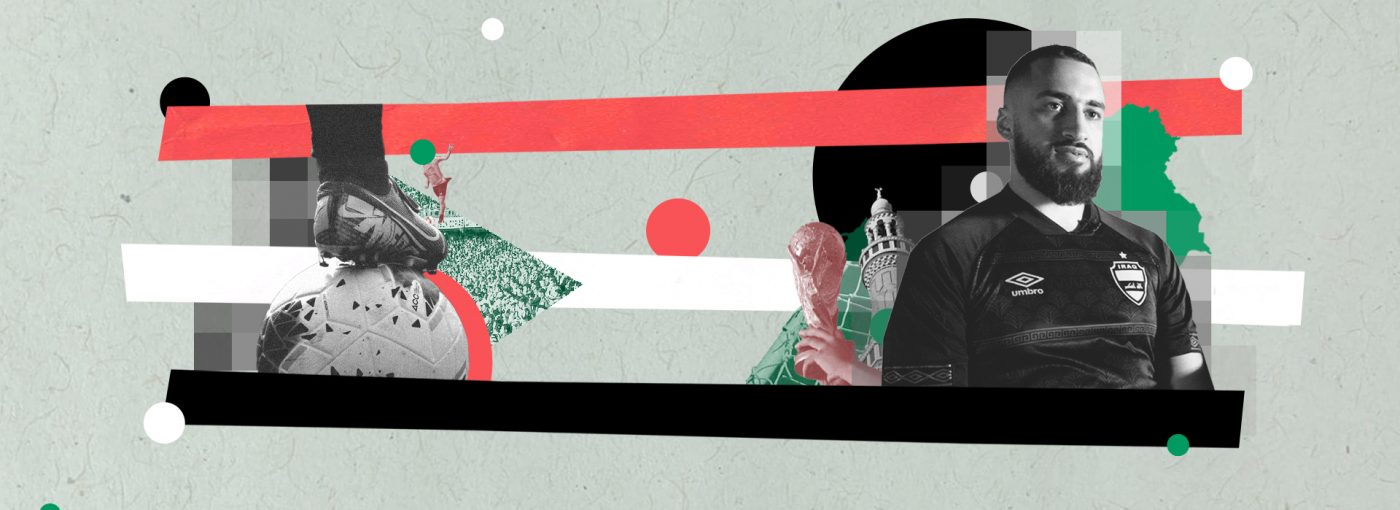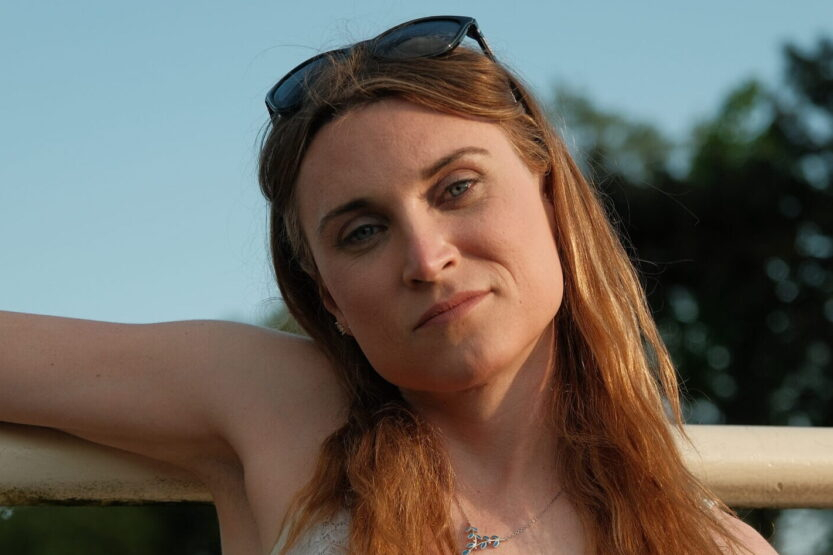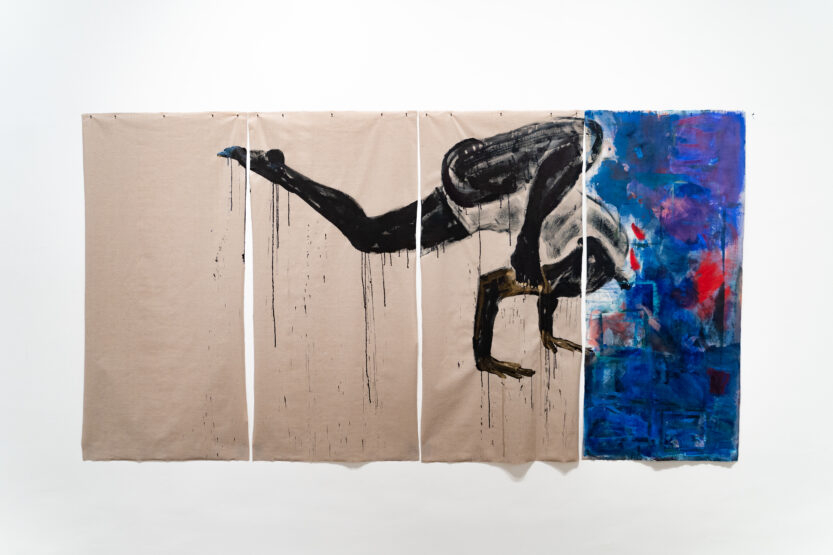I think the context in which I first came across Saoud Khalaf’s filmmaking was significant. It was during Southbank Centre’s Refugee Week takeover; I’d just hosted a panel on the power of healing through sport following a screening of shado’s Comfort Angels documentary, which centres on a women’s football team in Liverpool made by and for refugee women and people seeking asylum. Saoud was part of a scratch event programmed after ours, showcasing a piece introducing the young people of Shatila, a refugee camp in Southern Beirut.
Shatila was established in 1949 to take in Palestinian refugees who were displaced in the Nakba (Palestinian “Catastrophe”) by Israel in 1948. As with so many of the so-called temporary bases in and bordering Palestine following original and continued Zionist occupation, it’s turned into more of a permanent structure.
Since the beginning of the Syrian Civil War, a large number of Syrian refugees now live in the camp alongside Palestinians – some of whom are fourth generation, born native to the camp. Saoud, along with his close friend and collaborator Mohammed, first went out to Lebanon in May 2022, which is when they captured this original footage.
The beginning of the short film we watched that day in the Southbank Centre centres on a football match played by the children in the camp. “Here’s Lionel Messi, playing football,” one young protagonist shrieks as his friend dribbles the ball down the makeshift pitch, “and he’s scored a goal!” After this excitement, he hosts a post-match Q&A. “What’s your favourite colour?” he asks, using an empty plastic bottle as his microphone. “Do you like toilet paper? How many years has Israel occupied Palestine?”
So necessarily, when Saoud and I eventually sat down last week to catch up, our conversation was already couched in a shared belief of the importance of football in community building, inclusion and healing – especially for those whose lives have been disrupted by war.
Football has always been a part of Saoud’s life. Growing up in the UK, he trained with his brother at a Brazilian football skills academy as a child. As his first job out of school, he coached youth football, and he’s also inherited a love of Manchester United that runs through the veins of his family.
It’s safe to say that football is part of his identity. Never was this more true than in 2007, when Iraq played in the Asian Cup. “Being able to marry my Iraqi identity and my love for football was so exciting,” he tells me. “And I shared the surname of our best player, Younis Mahmoud Khalaf – what more could a young football fan ask for?”
Iraq’s Asian Cup win
We’re here to talk about The Impossible Dream, a film Saoud released this summer which commemorates the 15th anniversary of Iraq ultimately winning the Asian Cup.
If you think about Iraq in 2007, sporting success probably isn’t the first thing that springs to mind. Iraq was in the midst of a war which began in 2003 following the US invasion under the Bush administration and backed by Blair’s government in the UK, so you wouldn’t be entirely to blame if you weren’t aware of the country’s footballing achievements during this time.
As Saoud explains, “2007 saw the highest levels of sectarian violence within Iraq in its recent history. The aftermath of the invasion combined with a US-implemented sectarian political system only added fuel to the flames of violence.”
But it’s precisely because the Cup win – a moment which provided an unquestionably important glimmer of joy for Iraqis both at home and in the diaspora – was overlooked, that Saoud was motivated to create the film.
“I felt it needed to be told from the position of those who witnessed it first hand. I’ve always wanted to see the story narrated from a native perspective, one that focused on the emotions we’d all faced, emphasising how life-changing it was for us,” he says. “We don’t expect incredible stories like this to come out of Iraq; we’re a generation that’s witnessed perspectives of pain and visuals of violence only. This story typically goes against the grain, and that’s why it’s so crucial to be heard.”
And by overlooking the success of the football team, you also miss the significance of its makeup. “The unification of Sunnis, Shias and Kurds within one squad gave Iraqis even more hope that a peaceful coexistence was achievable,” explains Saoud.
The impact of colonialism on the Iraqi diaspora
The Impossible Dream shows snippets of Iraqis celebrating the final win in the streets, hanging out of cars and waving the Iraqi flag. It was a scene mirrored in Edgware Road in West London, where Saoud and other diasporic Iraqis were celebrating with equal jubilation. “It was the pinnacle of my youth,” says Saoud. “For a brief moment in time, we weren’t focused on the suffering of our people, but the success of our players.”
The importance of the Asian Cup for Saoud can’t be underestimated. In the film, his voiceover tells us that, following a childhood growing up away from home, the win in 2007 made him finally feel like an Iraqi.
“Many who grow up in diaspora are away from a homeland that they wish to see, a culture that they yearn for and a mother tongue they wish was native to them,” he tells me. “The manner in which we grow up seeing our countries of heritage – especially in the case of them being occupied or having been through war – leaves us with a sour taste. We know the rich culture and history that our lands boast, yet we are reduced to imagery of destruction and having a society around us who know nothing positive about where we come from.”
It’s a tale that will be all too familiar to diasporic communities in countries such as the UK, where colonial structures which govern education and media are deliberately distorting.
“Contemporary news coverage of Iraq places its roots within the establishment of the War on Terror and the aftermath of the 2003 invasion,” explains Saoud. “The real injustice is the lack of awareness of the historical region of Mesopotamia (modern day mainly Iraq but small parts of Syria, Iran, Kuwait and Turkey also) being known as the ‘Cradle of Civilisation’.”
And colonialism crept its way into the futures of the Iraqi players, too. While success on an international level such as the Asian Cup win naturally piqued the interest of more established football clubs, British immigration policy – “surprise, surprise,” remarks Saoud – presented a barrier.
Subscribe to shado's weekly newsletter
Exclusive event news, job and creative opportunities, first access to tickets and – just in case you missed them – our picks of the week, from inside shado and out.

After excelling throughout the tournament, the Iraq team midfielder Nashat Akram was handed a trial at Manchester City – but this Premier League fantasy remained just that, as he was denied a work permit in the UK.
It’s why films such as The Impossible Dream are so important in setting the record straight. “They simply highlight the negative influence of Western governments and how their interjections have not only inhibited cultural progression but also resulted in mass loss of civilian life, whilst still shedding light on the positive stories we have to tell from within the nation as well as the diaspora,” Saoud shrugs.
Simple isn’t quite the term that springs to my mind when it comes to the artful way in which Saoud carves narratives which are deeply rooted in a violent historical context while still sensitive and celebratory in nature.
Lost generations and the power of children’s narratives
As we speak, he’s back in Shatila with Mohammed establishing long term projects for the children in the camp off the back of a successful fundraising campaign. They’ve set up a Jiu Jitsu centre, provided bespoke FC Shatila football kits for the football academy, and sourced hundreds of school bags complete with stationary for the younger children as they start their new academic year.
Saoud’s work with young people is extremely intentional – and he’s uplifting the stories of young Syrian and Palestinian refugees in the camp for the same reason as he’s highlighting the stories of Iraq in 2007 alongside the history and nature of their conflict.
He reminds me of an infamous exchange from 1996 between the former US Secretary of State, Madeleine Albright, and veteran journalist Lesley Stahl, in regards to the US sanctions imposed on Iraq after the invasion of Kuwait:
Stahl asks: “We have heard that half a million [Iraqi] children have died. I mean, that is more children than died in Hiroshima. Is the price worth it?”
“I think that is a very hard choice,” Albright answers, “but the price, we think, the price is worth it.”
Whether it’s Iraq in 1996, 2007 or Lebanon in 2022, Saoud says: “Children are not just suffering for no reason. There are well considered and deliberate political decisions that result in these deaths of innocents, showing a supreme lack of humanity.” And he believes that it’s his duty to keep creating films which are full of empathy yet still platform the realities of war, “in the hope that mass awareness will bring about what we cry for, the accountability for those who have escaped being brought to justice.”
What can you do?
Watch:
- The Impossible Dream
- Memories of a Massacre: Sabra & Shatila 40 years on
- Football’s Greatest Ever Underdog Story
- For Sama
- Comfort Angels
Listen:
Read:
- ‘Iraqi amputee football team seeks healing as goal’
- I can only tell you what my eyes see, Giles Duley’s book on the impact of war on civilians















